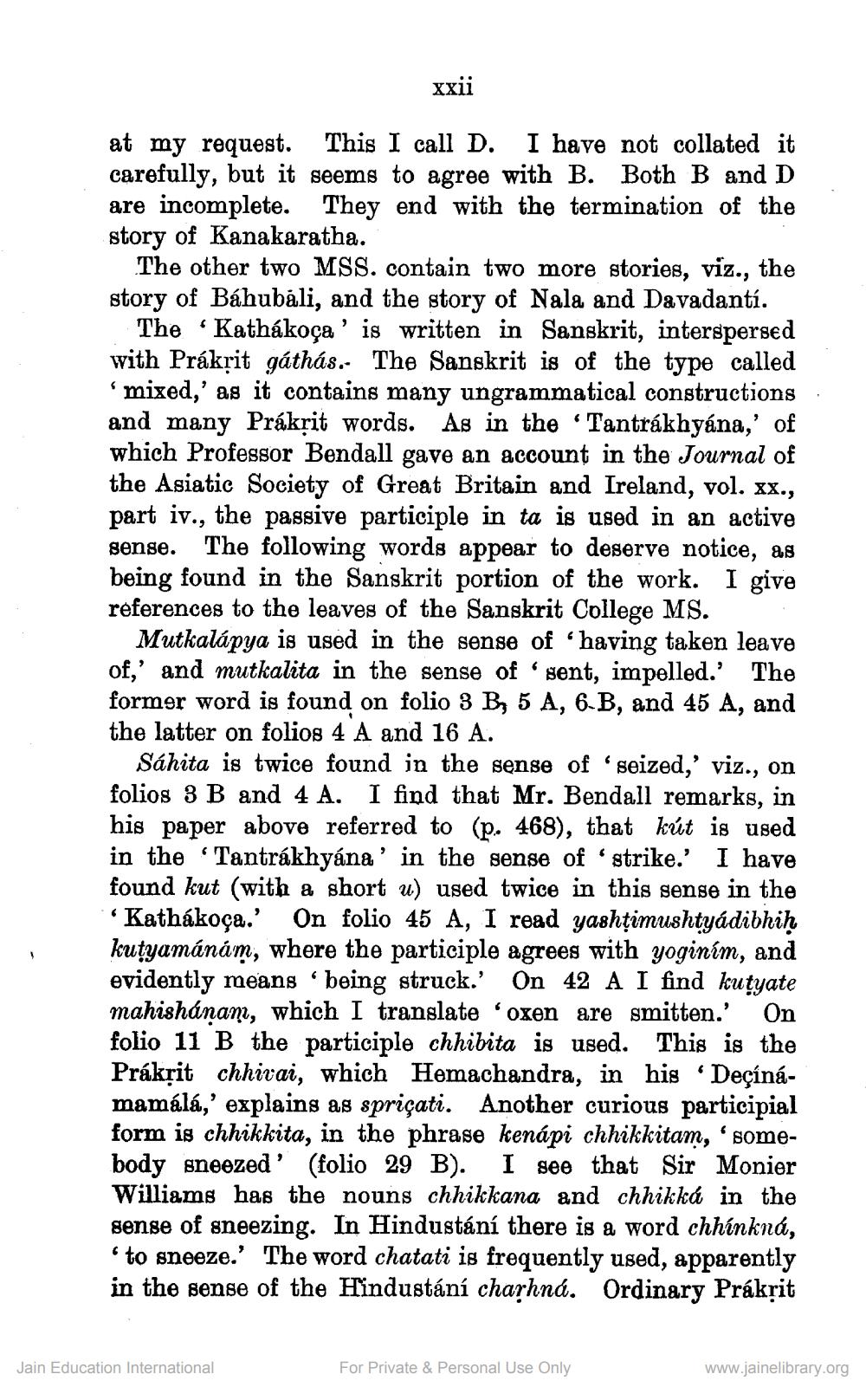________________
xxii
at my request. This I call D. I have not collated it carefully, but it seems to agree with B. Both B and D are incomplete. They end with the termination of the story of Kanakaratha. '
The other two MSS. contain two more stories, viz., the story of Bahubali, and the story of Nala and Davadantí.
The Kathákoça' is written in Sanskrit, interspersed with Prákrit gáthás. The Sanskrit is of the type called 'mixed,' as it contains many ungrammatical constructions and many Prákrit words. As in the Tantrákhyána,' of which Professor Bendall gave an account in the Journal of the Asiatic Society of Great Britain and Ireland, vol. xx., part iv., the passive participle in ta is used in an active sense. The following words appear to deserve notice, as being found in the Sanskrit portion of the work. I give references to the leaves of the Sanskrit College MS.
Mutkalápya is used in the sense of having taken leave of, and mutkalita in the sense of sent, impelled.' The former word is found on folio 3 B, 5 A, 6-B, and 45 A, and the latter on folios 4 A and 16 A.
Sáhita is twice found in the sense of seized,' viz., on folios 3 B and 4 A. I find that Mr. Bendall remarks, in his paper above referred to (p. 468), that kút is used in the Tantrákhyána' in the sense of strike.' I have found kut (with a short u) used twice in this sense in the
Kathákoça.' On folio 45 A, I read yashțimushtyádibhiḥ kutyamánám, where the participle agrees with yoginim, and evidently means 'being struck. On 42 A I find kutyate mahishánan, which I translate 'oxen are smitten. On folio 11 B the participle chhibita is used. This is the Prákțit chhivai, which Hemachandra, in his Deçinámamálá,' explains as spriçati. Another curious participial form is chhikkita, in the phrase kenápi chhikkitam, 'somebody sneezed' (folio 29 B). I see that Sir Monier Williams has the nouns chhikkana and chhikká in the sense of sneezing. In Hindustání there is a word chhinkná,
to sneeze.' The word chatati is frequently used, apparently in the sense of the Hindustání charhná. Ordinary Prákrit
Jain Education International
For Private & Personal Use Only
www.jainelibrary.org




